Whether or not to eat wheat has become a pretty hot topic, even in households. People have become so attached to their bread products that they can't imagine why anyone would want to willingly give them up without a medical reason. In jest, my own brother affectionately calls my meals I-hate-my-life salads.
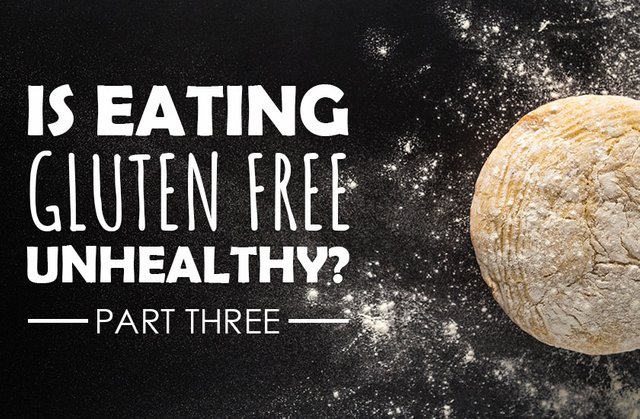 Photo by Patrick Fore on Unsplash
Photo by Patrick Fore on UnsplashI'll admit that I was so excited about my own transition to wellness that I encouraged others to hop on the gluten-free train with me in the beginning. But since wheat production isn't going away any time soon, and there are still millions of people who seem unaffected with wheat consumption, I decided to focus on my own health instead. After all, everyone should at least have the freedom to choose what they eat, right?
So if you're not celiac are there any real reasons not to eat wheat?
4 Reasons to Ditch Conventional Wheat Products
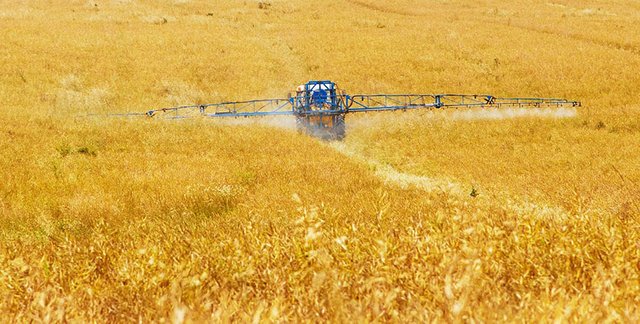 Source
Source1. Glyphosate Contamination
The fact that farmers spray glyphosate (Round Up) on non-GMO crops to help them mature evenly is no secret. Farmers use this technique to increase the yield of their crops which is great for their pockets but bad for consumers health. These chemicals have found their way into cereals, snack bars, and other wheat products. While the EPA claims the levels found are with in "safe" limits they have no idea how much of these foods people are consuming on a daily / weekly / yearly basis. Plus, since when is any amount of poison considered safe?
Additionally, wheat isn't the only crop sprayed with glyphosate which means those low levels found in wheat products is just the beginning. Compound those products with all of the other crops being sprayed and you have a recipe for health issues.
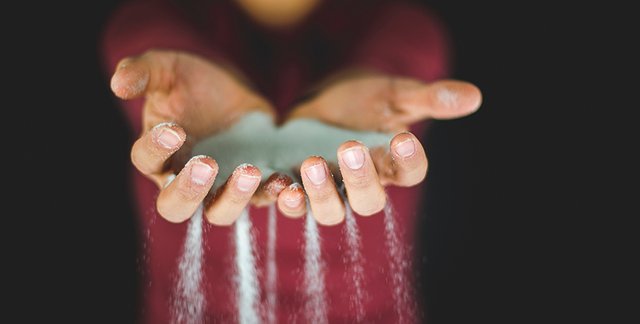 Photo by Ben White on Unsplash
Photo by Ben White on Unsplash2. Causes High Blood Sugar Levels
White Flour Can Spike Insulin as High as White Sugar. White wheat bread has a glycemic index of 75 ± 2 while sucrose (sugar) has a glycemic index of 65 ± 4. While health professionals often recommend foods with a high glycemic index for energy and recovery after exercise the average person does not require these foods the same way a long distance runner might. Caloric expenditures play an important role not only in which food groups we should be prioritizing but our daily servings as well.
Dieticians and doctors may suggest substituting white bread with it's "healthy" counterpart, whole wheat bread, but with a glycemic index of 74 ± 2 one has to wonder where that recommendation actually came from. In North America, grass fed cattle are often "grain finished" to help achieve a more consistent flavour and to fatten them up. And if grain can fatten them up...
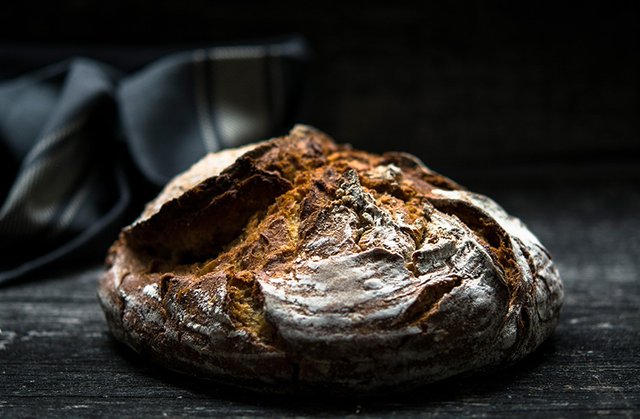 Photo by Jonathan Pielmayer on Unsplash
Photo by Jonathan Pielmayer on Unsplash3. Robs Nutrients
Wheat contains lectins and phytates which are considered anti-nutrients. These plant toxins bind to vitamins and minerals effectively rendering them bio-unavailable. In Canada, wheat is required by-law to be fortified which is essentially an exercise in futility since these nutrients won't be able to be properly absorbed anyway.
Lectins are part of a plants defense system which are in place to prevent their consumption so they can continue to survive. Phytates binds to nutrients such as calcium, magnesium, potassium, vitamin A, and zinc. Although, there is evidence that soaking grains can neutralize these enzyme inhibitors, and increase absorption which is probably why people with gluten sensitivities can tolerate traditionally fermented grain products like sourdough.
 Photo by Alisa Anton on Unsplash
Photo by Alisa Anton on Unsplash4. Enriched Flour Can Disrupt Normal Thyroid Function (USA)
Enriched wheat flour contains potassium bromate which is used to bleach the dough and enhance dough elasticity. Adding bromine to flour creates the fluffy, soft, texture of baked goods, while at the same time displacing the iodine in your thyroid.
When researchers in Japan began publishing studies revealing the connection between potassium bromate and cancer in the thyroids, kidneys, and other body parts of rats and mice other countries began banning the food additive. The FDA, however, did not follow suit stating that the amount of potassium bromate that remained after baking was negligible. Bromate was banned a food additive in Canada in 1994 but is still in use in the United States.
Avoid This If You Want To Keep Your Thyroid Healthy
The Truth About Potassium Bromate


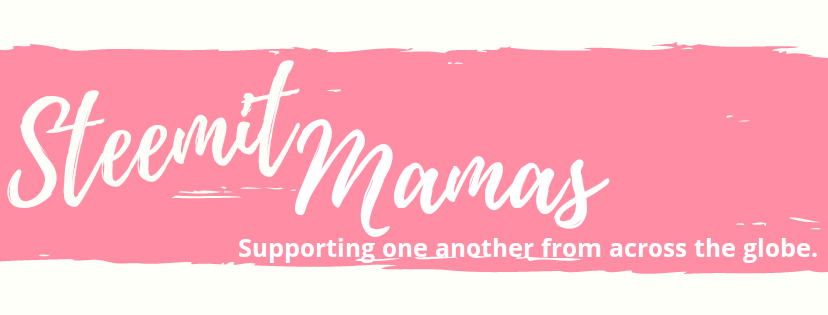
Thanks so much for the glyphosate crop info. So encouraging to just grow your own food where you can. In New Zealand where i live they spray round up all through the streets :'( even when its windy or raining. They spray it everywhere. Personally, i'd rather see weeds on the footpaths than be poisoned non stop. I had a hair test done that came back with some levels of organophosphates. It's scary!
I like the sound of Steemit mamas :) x
Downvoting a post can decrease pending rewards and make it less visible. Common reasons:
Submit
You're welcome! I knew some of this information from years ago but when I started researching for these posts I was truly appalled at what I was uncovering. Our food supply has become so toxic. People seem to be of the mindset that these little exposures are safe but there are no longer term studies. What happens when our bodies start breaking down from the constant assaults? How long will it take for someone the make the connection? Wow, a hair sample is a great idea to check in on your health. I agree, bring on the weeds and boot the spraying. Where we are the city trialled a program in the local parks where they brought in goats to control the weeds instead of spraying herbicides. It did so well the goats are back again! Yes, Steemit mamas are so supportive. Are you on discord? If so, click the banner in the post to get access to the group. If not, consider making an account. The mamas there chat about so much and offer support for Steemit posts. If you have any questions. Let me know. -Aimee
Downvoting a post can decrease pending rewards and make it less visible. Common reasons:
Submit
Love this series @canadianrenegade. Just to let you know, we referred to it in our 'Natural Medicine Love Time' curation post today for great posts under the #naturalmedicine tag. You can find it here
Love your work - we're proud that you are using the tag, and we're also hoping to see you in the Discord channel too!
Downvoting a post can decrease pending rewards and make it less visible. Common reasons:
Submit
Thank you so much! I think I opened a can of worms once I started researching for these posts and I plan to delve a little more into the topic still. Thanks for sharing this series in your curation post. We really appreciate the support. I didn't realize there was a discord channel but I will check it out. I have been having trouble keeping up with everything lately but I will do my best to drop by. I am very interested in learning more about natural medicine, especially now that we have kiddos. Cheers, Aimee
Downvoting a post can decrease pending rewards and make it less visible. Common reasons:
Submit
I've been thinking of writing a post about the natural medicines that I used when my boy was little, but it seems so long ago now! It's funny with some of these ideas for posts - they tend to unravel, and unravel, and unravel! Very interesting though, and very worthy of curation. :)
Downvoting a post can decrease pending rewards and make it less visible. Common reasons:
Submit
Yes! They really do unravel. I would be interested to hear about natural remedies you used with your boy for sure. I think it's interesting that natural remedies are frowned upon here. If something goes wrong, even one time the media will harp on the outcome for weeks and yet still never cover the damage of conventional health care or vaccine damage even though it harms more children more often than natural approaches seem to. -Aimee
Downvoting a post can decrease pending rewards and make it less visible. Common reasons:
Submit
Thanks for the info. We are use to eat wheat in daily food and we are not finding any issues with it. Could you please let me know if it(Issues) depends on the geographical area as well?
Downvoting a post can decrease pending rewards and make it less visible. Common reasons:
Submit
Hello! Yes, I do believe geographical region matters. I am still learning but I believe that there are several factors to to consider when consuming wheat such as type of wheat, milling process, and herbicides used. Here is an article that lists where the herbicide glyphosate is banned. That would probably be a good first step. Some people truly don't seem to be affected by wheat consumption. But, our needs can be as individual as we are, meaning there is no one size fits all solution to eating well. I hope this helps. Thanks for dropping by. -Aimee
Downvoting a post can decrease pending rewards and make it less visible. Common reasons:
Submit
Thanks for nice explanation. I will go through the suggested article. Thanks
Downvoting a post can decrease pending rewards and make it less visible. Common reasons:
Submit
I learned more about roundup use and exactly how it interacts with plants and soil this summer. I had no idea it was a systemic herbicide, meaning it penetrates every aspect of a plant, right into the cells. I also wasn't aware it was used for dry down on non-GMO crops, such as wheat, sunflowers, oats, sugarcane, dried beans, etc.
Just one more reason to avoid wheat and try to eat only organic foods....
Downvoting a post can decrease pending rewards and make it less visible. Common reasons:
Submit
Yes, words escape me for the toxicity of glyphosate. The more I read, the more appalled I am. I fell down the rabbit hole while researching for my posts and I think I will continue writing about this topic. I don't think people realize how polluted the food supply has become. Sometimes, even I forget so I was grateful for the reminder, however depressing it was. Matt and I were reaffirmed in our decision to pursue the homestead and growing our own food despite how challenging the process has been. Thanks again for stopping by, I really enjoy connecting with you. -Aimee
Downvoting a post can decrease pending rewards and make it less visible. Common reasons:
Submit
Yes, I often think about how bad the food supply is. That was the #1 reason we started raising our own, and why we try to do as much teaching about food as we can.
Downvoting a post can decrease pending rewards and make it less visible. Common reasons:
Submit